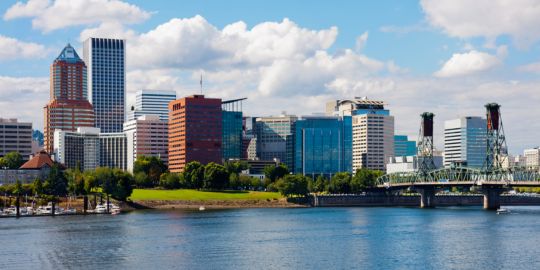The labor market in the USA

Although the economy has mostly recovered and unemployment has steadily been decreasing since the 2008 recession, the American labor market remains a very competitive place. Highly-skilled expats will find it easier to find employment, although there might be some challenges to face when looking for a job.
Challenges for expat job seekers
One of the biggest hurdles foreigners will face in the American job market is getting a visa. The process must be initiated by the sponsoring employer, and is time-consuming and expensive. The quota for the H1B work permit fills up within hours or a few days usually, and the application can only be submitted on April 1st until whenever the quota fills up. That said, expats with advanced degrees and specialized skills and who are fluent English speakers will fare better than most when it comes to finding an employer willing to go through the sponsorship process.
Important: Skills in English should not be underestimated if one wishes to build a career in the U.S. Not having a working knowledge of the language will limit job opportunities.
U.S. industries and areas of growth
Major industries in the U.S. include healthcare and pharmaceuticals, consumer goods such as electronics and software, and food processing and agricultural products such as lumber and minerals. Additionally, petroleum, steel, motor vehicles, and aerospace retain a presence in the U.S. economy. These industries are generally region specific. West coast cities like Los Angeles, San Francisco and Seattle are known for technology and entertainment. Agricultural industries, food processing and manufacturing are principally located in the midwest. Big cities like New York City, Boston, and Washington D.C. are known for financial, consulting, and technical services.
Economic sectors showing recent growth are healthcare, electronics, software, and finance. A growing elderly population means that there is an increasing need for certified caregivers and nurses. Lastly, the IT industry is continuing to grow steadily and has a large demand for recent graduates.
Labor standards in the U.S.
It is important that expats coming to work in the U.S. understand what to expect from the American work culture. Generally speaking, employees aren't granted the same kinds of benefits compared to many other countries. There are federal and state regulations, but many aspects of pay and benefits (such as wages, annual leave, or health care insurance) are left to the employer to decide.
Current labor law advocates a minimum wage of $7.25 per hour. However, gratuities can also be a form of remuneration and allow employers to offer a wage below the federal minimum. The work week generally consists of 40 working hours, which means eight working hours over five days, including a lunch break. If you're paid by the hour, any overtime work is guaranteed a higher wage by federal law.
There is no law officially saying that a company has the obligation to grant annual leave (referred to as paid time off or paid leave) to employees. Additionally, businesses are not required to pay wages for time not worked such as on national holidays or for sick leave. The Family and Medical Leave Act (FMLA) guarantees up to 12 weeks of unpaid leave for certain medical conditions (such as having a baby). If offered, paid leave is considered a fringe benefit and usually increases with seniority at a company.
Similarly, employers are not required to pay for, or subsidize health care for employees. This too is sometimes offered as a fringe benefit.
Useful Links:









